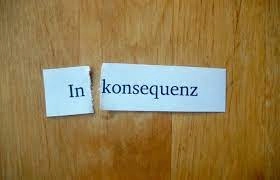Coaching consultation – Become an expert
Both coaching and counselling of managers, employees and companies has been the cure for internal malaises for many years. You can’t delegate? A coach supports you in learning how to hand over responsibilities and to communicate this handover correctly. You are looking for a successor? Naturally, a coach will help you preparing him for his new role.
He helps the coachee/the designated successor to continue business the way you would want it – albeit with his or her own ideas and vision. But what, actually, is coaching? Ultimately, it’s nothing more than the development of your personal skills and competences. Your coach/trainer helps you to address your strengths, weaknesses and abilities and to put these to optimum use.
In contrast to this, we find (business) consulting. This is not the same as coaching! A management consultant is an experienced and external person who advises companies on management techniques. For example, this can be optimising the internal team communication as well as optimising important company processes.
You may ask yourself why one or the other is needed at all? The answer is quite simple: you yourself – as the owner – are far too close to your own company. This means: in decisive situations, and above all else, you lack all the needed emotional distance. A coach, for instance, can help to provide the necessary perspective and emotional distance.
An advisor, on the other hand, helps to improve organisational matters.
I need a coach – how exactly does he help me?
As mentioned at the beginning, it is the coach’s task to discuss with you your personal skills, strengths and weaknesses. Based on this, changes and improvements can be achieved. This is also highly important for the company. Why? Most of the time, it is emotions that “cloud” your view for the essential things. This, however, does not mean that a coach will turn off all your emotions!
Rather, he will help you to manage these emotions better. Since this control can have its “pitfalls”, coaches must or should generally complete a training. Unlike a counsellor – you can be a counsellor “just like that”, there is no need for a classical training. If you act as a coach, you can use the following questions as guidelines for working with your clients:
- The client must be/become clear about his “true self”
- He can then play with new behaviours and new roles to find himself
- The client needs to figure out his idea of his “own self”: who does he want to be?
- Together with the coach, he develops a plan on how to achieve the set goals in the future
It is important that coaching doesn’t turn into a “substitute therapy”. It is true that private factors and issues as well as professional ones do play a role. However, it isn’t the coach’s task to be his client’s shrink. By working through these various influencing factors, strengths and weaknesses, both coach and coachee can work out how the latter can use these differently in the future.
The consultant – your expert for in-house processes
A counsellor doesn’t necessarily address the emotional processes and issues within a company – but he may well do so. This can be the case, e.g., when it comes to analysing the employees’ mood. Here, too, emotions are at work, which can manifest themselves in mobbing, burnout and addiction problems, to name but a few. The result: a weakened team, which will ultimately affect the company.
Those of you, who read my blogs regularly, know that I believe this to be the main reason for a business’ success or failure. Why? If your team no longer functions due to communication issues, for instance, both sales figures and the company’s turnover will also decline. However, optimising the team communication is only one of a consultant’s tasks. In addition:
-
He conducts a situation analysis in the company (ACTUAL vs. TARGET)
-
Together with you, he implements a regularly conducted measure controlling
-
He can help you find the right target customers & to rebalance the product range
-
He thus supports you in optimising important and vital processes in your company
These are a few more points a consultant discusses with you and in which he lends you an external hand and view. As with coaching, the same principle applies: this neutral view can help you recognise long-established patterns and helps you break them. In the long run, this means more success and satisfaction for you, your employees and your company.
Are you also looking for a coach or a consultant? Would you like to finally recognise old patterns and to change them, thus optimising yourself, your team and your company? Call me today four your personal initial consultation at +49 (0)40 80 9031 9016 or leave a message here






